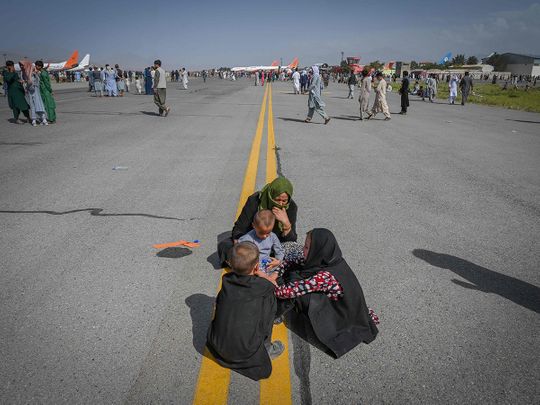
The whole world is talking about the unfolding crisis in Afghanistan. There are two contrary ways in which to understand it.
The unexpectedly swift, catastrophic, collapse of the authority of the United States in the region has come as a surprise to most observers, whether in the region or in major capitals spread across the world. It has dealt a severe blow to US credibility and power.
Some, however, have welcomed the withdrawal of foreign troops and the fall of Ashraf Ghani government. The latter is absconding. Taliban supporters and backers are euphoric, claiming that this is a victory of the native sons of the country against external forces of occupation and imperialism.
The situation is fluid, accompanied by these contrary narratives, critical or sympathetic to the new regime. The former point to the Taliban’s past.
On the one hand, there is an attempt to airbrush and normalise what is dubbed as the new Taliban. Gun-totting fighters are seen going about their daily chores or doing normal things such as eating ice-cream or visiting amusement parks.
On the other hand, images of violence, intolerance, and human rights abuses are also being daily flashed across the world by the major mass media companies.
These seem to be designed to create fear, distrust, and disgust against the Taliban, as also call into question the stability of the new regime.
Officials of the former government, including ambassadors in regional capitals, emphasise that the Taliban administration is yet to be recognised. Therefore, it would be premature to proclaim the outright and incontrovertible victory of the Taliban.
Indeed, from the news reports and information pouring in, the country is still in a considerable confusion, even chaos. There is a shortage of trained manpower to run systems and maintain order.
Money is running out
There is an acute scarcity of doctors, engineers, technicians, and skilled or semi-skilled personnel to manage the infrastructure and functioning of a modern society. Moreover, money is running out. Afghanistan assets abroad, particularly in the US, are frozen for the time being.
In retrospect, experts might say with confidence, “Afghanistan is the graveyard of empires. This is just history repeating itself.” But, as we know only too well, hindsight is 20/20. Also, history never repeats itself, nor does time move backward. Each time, each case, plays out differently, even if the some elements and themes persist.
Pakistan and China have high stakes in Afghanistan but where does this all this leave India?
Despite the setback in having to evacuate its officials and citizens along with Western powers, shutting down its embassies and consulates, losing control over its humanitarian and developmental assets amounting to over $3 billion, India still enjoys tremendous goodwill among the Afghan people.
Tens of thousands of Afghan refugees are treated well and prosper in India. Many leaders in waiting, including former president, Hamid Karzai, also found shelter in India. There are, in addition, thousands of Afghan students receiving free or subsidised education in the country.
India’s support for the Afghan people
India, thus, needs to build on this goodwill and enhance its role in the region as the primary upholder of the global rule of law and democratic values.
The power vacuum created by the untimely and haphazard departure of the US places the supplementary responsibility on India to remain a principled, trustworthy, and prominent promoter of peace and prosperity in the subcontinent.
Every crisis, as the cliché goes, is an opportunity. This one is bound to test India’s diplomatic, economic, strategic skills, and political resilience.
The advantage that India enjoys is that in the last twenty years it has grown considerably in technological, economic, and military might. It has also shown itself an upholder of positive values in the world.
Given its current presidentship of the United Nations Security Council, the Afghanistan emergency poses a challenge as well as chance to India to rise on the world stage in its position as a statesman and stabiliser. With Prime Minister Narendra Modi and External Affairs Minister S. Jaishankar leading the India initiative, the prospects need not be as bleak as they seem just now.
India’s support for the Afghan people and their struggle for a better and prosperous future must continue regardless of the regime.
As to changing regional power equations, the premise on which to build policy is that ordinary people in the sub-continent, regardless of what their leaders claim, want peace.
History has shown that empires built on violence and power must, sooner or later, bite the dust.









